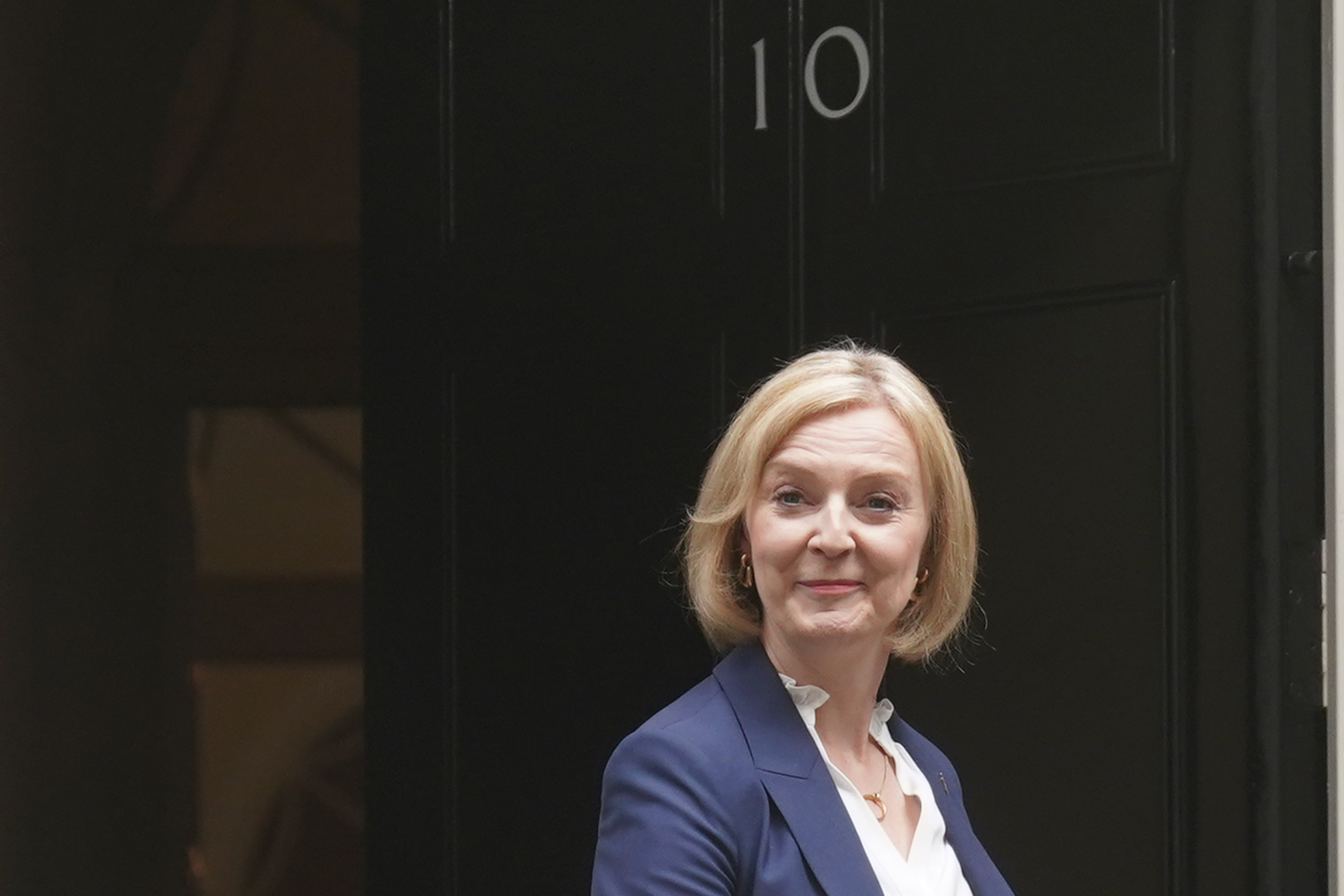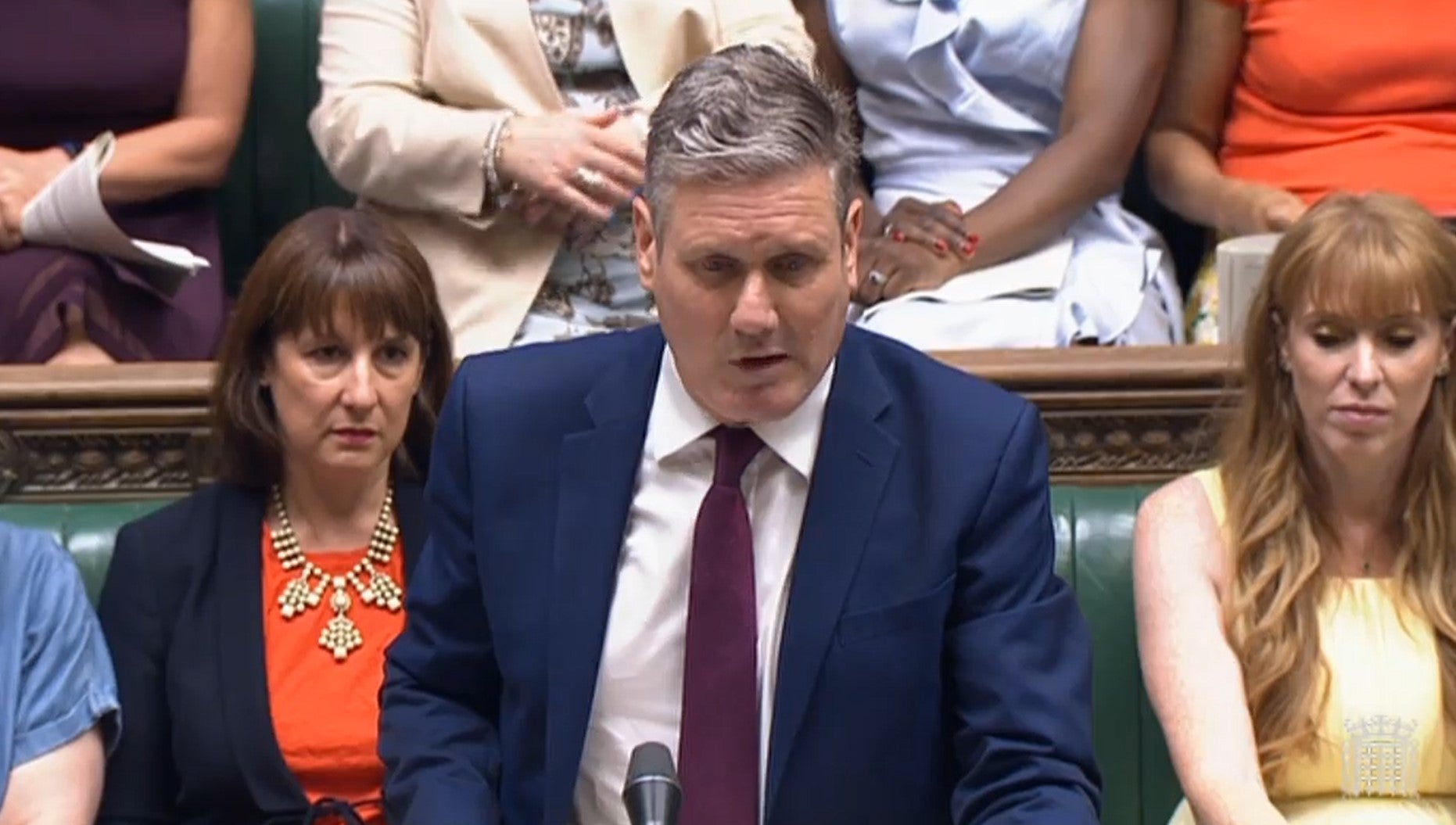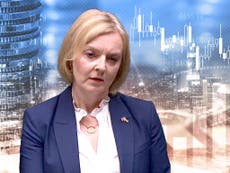Liz Truss’s rejection of windfall tax ‘to saddle UK with debt for decades’
Bill could be higher than cost of bank bailout after 2008 financial crash, expert warns

Sterling plunged to its lowest level against the dollar in 37 years as experts warned Liz Truss’s plan to ease the cost of living crisis without taxing energy firms could saddle Britons with debt for decades.
Markets appeared to be rattled by the new prime minister’s decision to borrow to pay the £100bn-plus needed to keep lights and heating on this winter.
Low-pay think tank the Resolution Foundation warned the eventual cost of the energy crisis could even outstrip the £137bn bailout of banks following the 2008 financial crash.
The PM’s plan, which she will unveil in a statement to the Commons on Thursday, will freeze average bills at a level of around £2,500 by setting a cap on the price of a unit of energy, with anything above paid by the government.
Ministers have rejected an industry proposal for the state to underwrite bank loans to energy suppliers to cover the gap between the cap and the sky-high market price.
But Ms Truss came under intense fire at Prime Minister’s Questions when she flatly rejected the alternative of extending the £5bn windfall tax imposed by Rishi Sunak earlier this year.
Labour accused Ms Truss of making working people foot the bill while allowing energy firms to keep reaping huge profits during the cost of living crisis.
“Every single pound in excess profits she chooses not to tax is an extra pound on borrowing that working people will be forced to pay back for decades to come,” said Sir Keir Starmer. “Families and public services need every penny they can get. How on earth does she think now is the right time to protect Shell’s profits?”

The SNP’s Westminster leader Ian Blackford branded the plan a “Truss tax” amounting to “a decade-long raid on the bank accounts of ordinary taxpayers”.
As sterling slid to a 37-year-low just above $1.14, new chancellor Kwasi Kwarteng met with City financiers and Bank of England governor Andrew Bailey to reassure them about the government’s economic strategy.
Despite the need to take “decisive” action which will mean “necessary higher borrowing in the short term”, the Treasury is committed to ensuring that GDP grows faster than debt, and keeping debt as a proportion of the economy on a downward path, he said.
After Ms Truss spooked the City during the Tory leadership campaign by raising questions about the remit of the Bank of England, Mr Kwarteng gave his “full support” for its independence and its mission to control inflation. He reiterated his aim to get to 2.5 per cent trend growth – far above the current 0.8 per cent.

Speaking to The Independent, anti-poverty campaigners raised concerns that the cost of repaying the massive borrowing will eat into funds available for public services like health, education and care over many years.
Rebecca McDonald, chief economist at the Joseph Rowntree Foundation, said it was right for Ms Truss to “act boldly to tackle energy prices, and do so immediately”.
But she added: “While it is necessary to spend on a scale that meets the challenge of the emergency we face, the way it is clawed back in future is also important.
“We must avoid doing so in a way which places the burden on families on low incomes or which undermines the public services we all rely on. Families on lower incomes need support now and assurances it will be adaptable to the ongoing crisis, not to worry they will be responsible for picking up the bill.”
Simon Francis, of the End Fuel Poverty Coalition, warned there must be special provision for 7 million people with exceptionally high bills – including disabled people needing to run medical equipment on a 24-hour basis, and pensioners in old and poorly insulated homes – who risk “falling through the net” of Ms Truss’s plans.
Speaking ahead of Thursday’s announcement, Ms Truss said she would “take action immediately to help people and businesses with bills but also take decisive action to tackle the root cause of these problems”.
“I know families and businesses across the country are worried about how they are going to make ends meet this autumn and winter,” said the prime minister, who had previously denounced “handouts” to help pay bills.
“Putin’s war in Ukraine and weaponisation of gas supply in Europe is causing global prices to rise – and this has only made clearer that we must boost our long-term energy security and supply.”
Downing Street indicated the ban on fracking in England would be lifted as part of the energy package, despite the 2019 Conservative manifesto opposing an end to the ban unless science shows it can be done safely.
Ms Truss had vowed during her leadership campaign that she would end opposition to shale gas extraction in places where it is backed by local communities.
The Resolution Foundation said Ms Truss should even now be prepared to change tack and fund at least part of her package through windfall taxes and “solidarity taxes” on the rich – who will be receiving handouts they do not need under her plans.
Chief executive Torsten Bell told The Independent that the new PM was right to conclude that “very big handouts indeed” are needed. Even an intervention on the scale envisaged will leave the UK facing “a difficult winter ahead” with families struggling to heat their homes, he said.
“Given the potential costs, and the case for avoiding piling unnecessary pressure on the Bank of England to raise interest rates further, the government should look to reduce the pressure for higher borrowing,” he said.
“History shows that is done by regulating away, or taxing, windfalls made by some energy firms and asking those on higher incomes – less in need but still receiving big bill reductions – to contribute towards their costs via solidarity taxes.”
Paul Johnson, director of the Institute of Fiscal Studies, said borrowing on a large scale was “inevitable”, but said ministers need an “exit strategy” from support for bills that could stay high for a protracted period.
By next winter, help should be more targeted on those most in need, he said, adding: “Otherwise, we’re going to be on the hook, potentially, for an awful lot more money, for an awful lot longer.”
Shadow net zero secretary Ed Miliband said: “Core to any solution is the question of who pays? By ruling out a windfall tax, Liz Truss, in one of her first acts as prime minister, has written a blank cheque to the oil and gas giants making £170bn in excess profits, and the British people will foot the bill.
“Every penny her government refuses to raise in windfall taxes is money that they will be loading onto the British people for years to come.”







Join our commenting forum
Join thought-provoking conversations, follow other Independent readers and see their replies
Comments